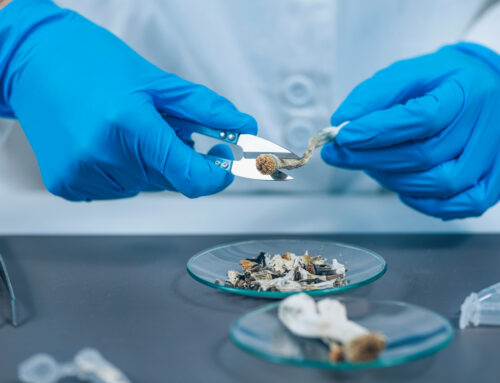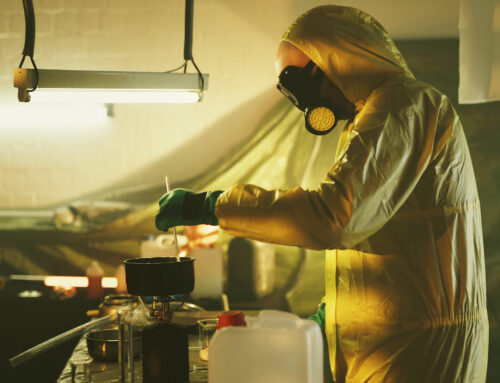| Drug | How Long It Lasts | Detected in Urine | Detected in Blood | Detected in Saliva | Detected in Hair Follicle |
|---|---|---|---|---|---|
| Heroin | Initial high lasts 5-30 minutes, overall high lasts 3-5 hours | Up to 3 days | Up to 6 hours | Up to 5 hours | Up to 90 days |
| Crack Cocaine | Initial high lasts 5-15 minutes, residual high up to 1 hour | Up to 7 days (with regular use) | Up to 24 hours | Up to 2 days | Up to 90 days |
| Valium (Diazepam) | Initial effects last 5-15 minutes, residual effects last up to an hour | Up to 6 weeks | Up to 48 hours | Up to 6 days | Up to 90 days |
| Kratom | Effects last 2-4 hours (up to 6 hours with higher doses) | Up to 7 days | About 2-3 days | About 48 hours | Up to 6 months |
| Mushrooms (Psilocybin) | Effects last 6-8 hours | Up to 24 hours (rarely up to 3 days) | Up to 48 hours | Up to 24 hours | Up to 90 days |
| Weed (THC) | Depends on potency and usage | Up to 30 days (rarely 90 days for chronic users) | Up to 24 hours | Up to 3 days | Up to 90 days |
| Meth | Varies by amount and frequency of use | Up to 7 days | Up to 3 days | Up to 4 days | Up to 90 days |
| Alcohol | Varies depending on amount consumed | Up to 24 hours (up to 72 hours for heavy use) | Up to 12 hours | Up to 24 hours | Up to 90 days |
Whether it’s a prescription painkiller or an organically sourced drug from an exotic plant, like kratom —- different drugs stay in the body for different lengths of time. The reasons why people want to know how long a drug remains in the body vary, too.
Regardless of your reasons for wanting to understand how long drugs stay in the body —- this article from Achieve Wellness and Recovery has you covered.
Just a few of the questions you will find answers to in this article include:
- How long does crack stay in urine?
- How long does heroin stay in the body?
- How long does kratom stay in your system?
- How long do mushrooms stay in your system?
- How long does Valium last and remain in the body?
- How long do Subutex and Suboxone stay in the system?
Why Do People Ask How Long a Drug Stays in the Body?
Why do people want to know how drugs stay in urine or remain in the body in some form? There are several reasons people ask these questions. Some are worried about drug interactions. Some people don’t want to establish their official “sober date” until they are confident the drugs are out of their system. Others may want to know if they will be able to pass a drug screen for employment or other purposes.
Reasons why people want to know how long drugs stay in the system include:
- Concerns about drug interactions or reactions.
- Worries about passing a drug screen for employment or other reasons.
- A desire not to set a “clean date” until they are sure all drugs are out of the system.
What Determines How Long a Drug Stays in Your System?
How long a drug stays in your body depends on several factors. They include how fat soluble the substance is, your body fat percentage, and your metabolism and body chemistry. Other important factors include how much of the drug is taken, how often, and sometimes how long you have been using the substance, and the half-life of the substance.
Highly fat-soluble substances, like THC, the active ingredient in weed (marijuana) can sometimes be detected up to 60-90 days after last use. In contrast, some other drugs, like magic mushrooms, may leave the body in less than 3 days. Hair follicle tests can detect most drugs back as far as 90 days and sometimes as long as six months after the last use.
What decides how long drugs stay in the body?
- How the body absorbs the drug (fat solubility)
- How often the drug is used and how long it’s been taken.
- A person’s body fat percentage and metabolism.
- The half-life of the substance.
How Long Heroin Stays in the Body and Other Heroin Facts
What Is Heroin?
Heroin is a highly addictive opioid manufactured from morphine extracted from opium. Opium is the dried and processed sap and resin harvested from opium poppy pods..As an opioid, it acts on the brain’s pleasure center to mask pain and create euphoria and a sleepy, dream-like state in higher doses.
What Does Heroin Look Like?
Heroin can appear as a brown, tan or off-white powder or as a dark brown/black tar-like substance.
How Long Does Heroin Last?
The initial high starts within minutes and lasts 5-30 minutes or longer. The overall high lasts 3-5 hours, depending on the administration route, heroin purity, and any adulterants like fentanyl.
How Long Does Heroin Stay in the Body?
Heroin has a half-life of only 3-6 minutes, as the body quickly begins to break the drug down into residual chemicals called metabolites. These metabolites are how urine screens and other drug tests detect heroin in the body. The metabolites of heroin can be found in the body for several days after the last use (or up to 90 days with a hair follicle test.)
Lengths of Time Heroin Can Be Detected in the System
- Urine: Up to 3 days after the last use.
- Blood: Up to 6 hours after use.
- Saliva: Up to 5 hours after use.
- Hair Follicle: Up to 90 days after the last use.
How Long Does Crack Stay in Urine and Other Crack Information
What Is Crack?
Crack cocaine is a highly addictive, free-base form of cocaine. Crack gets its name from its crackling sound when it’s smoked. Its short, intense, and almost immediate high makes it one of the most addictive forms of cocaine.
What Does Crack Look Like?
It appears as solid blocks, chunks, or pebbles of a crystal-like substance, varying in color from yellow to beige or white and sometimes a light, dirty pink.
How Long Does Crack Last?
The intense, initial high starts within 1-2 minutes and lasts 5-15 minutes or longer. After that, the user will experience a milder, residual high for 30 minutes to an hour or longer. Strong cravings to use again usually begin within that time, if not sooner.
How Long Does Crack Stay in Urine and the Rest of Your System?
How long crack stays in your body depends on a couple of things, including how often you smoke crack. If you rarely smoke crack, then it may not show in your urine in as little as 48 hours. If you smoke crack regularly, though, it can be detected in urine as long as a week later.
Lengths of Time Crack Can Be Detected in the Body
- Urine: Up to 7 days with regular use.
- Blood: Up to 24 hours after use.
- Saliva: Up to 2 days after last use.
- Hair Follicle: Up to 90 days after the last use.
How Long Does Valium Last and How Long is Valium in Urine?
What Is Valium?
Valium is a brand name for the benzodiazepine diazepam. It is prescribed for anxiety and alcohol withdrawal, among other things. Valium enhances the effects of a brain chemical called GABA. This causes a sense of calm and relaxation. Valilum is physically addictive, and benzo withdrawal symptoms can be dangerous and even deadly.
What Does Valium Look Like?
Name-brand Valium is a round tablet with a V-shaped hole in the center. Depending on the dosage, it may be light blue, white, or yellow. Generic or off-brand diazepam has many appearances but is almost always in tablet form.
How Long Does Valium Last?
The intense, initial high starts within 1-2 minutes and lasts 5-15 minutes or longer. After that, the user will experience a milder, residual high for 30 minutes to an hour or longer. Strong cravings to use again usually begin within that time, if not sooner.
How Long Does Valium Stay in Your System?
Like other benzodiazepines, Valium (diazepam) is fat soluable. That means your fat cells can absorb it, leading it to stay in your system longer. It also means that drinking a lot of water won’t effectively clear it out of your system sooner. How long Valium stays in your body depends on several things, including how long you’ve been taking it, how much you take, your bodyfat percentage, and metabolism.
Lengths of Time Valium Can Be Detected in the Body
- Urine: Up to 6 weeks.
- Blood: Up to 48 hours.
- Saliva: Up to 6 days after last use.
- Hair Follicle: Up up to 90 days after the last use.
How Long Does Kratom Stay in Your System?
What Is Kratom?
Kratom is a tropical evergreen from Southeast Asia, also called Mitragyna speciosa. The word kratom is also used for the drug that’s made from the plant’s leaves. Kratom is not illegal in the United States (yet), but it has dangerous side effects, including tachycardia and vomiting, and research shows it is toxic to the liver. It produces a mild opioid-like high, although it is technically not an opioid.
What Does Kratom Look Like?
In the U.S., kratom is usually sold as a loose powder or in capsules. Kratom powder is very finely ground and may be green, red, or orange. It is known for its unpleasant bitter taste.
How Long Does Kratom Last?
The duration of kratom’s effects depends on dosage, strain, and individual physiology. Typically consumed as a liquid or capsule, it takes 15-30 minutes to start working, peaks at about 1 hour, and lasts 2-4 hours. Higher doses can extend effects up to 6 hours.
How Long Does Kratom Stay in the Body?
How long kratom stays in your body can vary based on several factors, like how long you have used it, your metabolism, and your unique body chemistry. Some of its active ingredients, like mitragynine and 7-hydroxymitragynine, are fat soluble and may be stored in the liver. Kratom has been proven toxic to the liver in research.
Lengths of Time Kratom Can Be Detected in the Body
- Urine: Up to 7 days.
- Blood: About 2-3 days.
- Saliva: About 48 hours.
- Hair Follicle: Up to 6 months.
How Long Do Mushrooms Stay in Your System?
What Are Mushrooms (Psilocybin)?
Psilocybin mushrooms, AKA ‘magic mushrooms’ or shrooms, are fungi containing the psychoactive substance psilocybin. Upon consumption, psilocybin is transformed into psilocin in the body, which then interacts with the brain to cause changes in perception, induce hallucinations, and alter mood and thought processes. The effects of psilocybin mushrooms are very similar, but not identical, to those of LSD.
What Do Magic Mushrooms Look Like?
Psilocybin or magic mushrooms have long, whitish-gray stems and dark brown caps with lighter centers. When dried, the caps turn rusty brown with off-white patches. They feature dark gills underneath and bruise blue when handled. As fresh mushrooms quickly decompose, they are typically dried before they are sold.
How Long Do Magic Mushrooms Last?
The effects of mushrooms usually begin within 20-60 minutes of being eaten. The effects peak after about 2-4 hours, then begin to subside after another 2-4 hours. Overall the effects of magic mushrooms usually last around 6-8 hours, depending on the amount consumed and their potency.
How Long Do Shrooms Stay in Your System?
How long shrooms stay in your system depends on how often a person uses them and how much they use. Generally, they are out of your system within three days or less, except for hair follicle tests, which can detect mushrooms for up to 90 days (3 months).
Lengths of Time Mushrooms Can Be Detected in the Body
- Urine: Up to 24 hours (rarely up to 3 days in chronic users)
- Blood: Up to 48 hours.
- Saliva: Up to 24 hours.
- Hair Follicle: Up to 90 days.
Other Drugs and How Long They Stay in Your System
How Long Does Weed Stay in Your System?
How long THC or weed stays in your system depends heavily on how often you use marijuana or THC products, how potent the drug is, and how long you have been using it. THC is highly fat-soluble, so it can remain in the body for a long time, especially in someone with a higher body fat percentage and a slower metabolism.
Lengths of Time Weed Can Be Detected in the Body
- Urine: Up to 30 days (rarely up to 90 days in chronic users)
- Blood: Up to 24 hours.
- Saliva: Up to 3 days.
- Hair Follicle: Up to 90 days.
How Long Does Cocaine Stay in Your System?
- See ‘How Long Does Crack Stay in Urine and Other Crack Information’ above
How Long Do Benzos Stay in Your System?
- See ‘How Long Does Valium Last and How Long is Valium in Urine?’ above
How Long Does Meth Stay in Your System?
The amount of time Crystal methamphetamine or meth stays in your body depends on how often meth is used, how much is used, and the person’s metabolism, along with other factors. How long a person has been using meth can also be a factor.
Lengths of Time Meth Can Be Detected in the Body
- Urine: Up to 7 days.
- Blood: Up to 3 days.
- Saliva: Up to 4 days.
- Hair Follicle: Up to 90 days from last use.
How Long Does Alcohol Stay in Your System?
Alcohol moves through the body fairly quickly. However, it leaves behind metabolites which can be detected in urine, blood, saliva or hair long after the person has sobered up and nor longer feels the effects of alcohol. The length of time alcohol and it’s metabolites stay in the body is affected by how much a person drinks, their metabolism and sometimes other factors, like the regularity of their drinking.
Lengths of Time Alcohol Can Be Detected in the Body
- Urine: Up to 24 hours (up to 72 hours with heavy use)
- Blood: Up to 12 hours.
- Saliva: Up to 24 hours.
- Breath: From 12-24 hours.
- Hair Follicle: Up to 90 days from last drink.
Trying to Beat a Drug Test or Looking for Help with Addiction?
If you are reading this article to figure out when or how to beat a drug test —- ask yourself why. Even if you believe your drug or alcohol use is harmless, there is no such thing. You may not have experienced serious consequences yet, but nearly everyone does sooner or later.
Deep down inside, a part of you knows you’re on the wrong path. It’s just a question of how long you want to head in that direction. How high a price are you willing to pay so you can keep partying a little longer?
The people at Achieve Wellness and Recovery have been where you’re at. Almost every single one of us is either in recovery here or we have family members who have been hurt by addiction. We know the pain of addiction—-but we also know that there’s hope on the other side.
Maybe you’re not sure if you’re ready to quit yet. That’s OK. If you’re ready to talk about quitting, we’re here to listen and answer your questions about addiction and treatment.
It’s Never Too Late To Change the Road You’re On
We’re ready to help when you’re ready to call.
You can also click here to find out how our program can work with your insurance.








